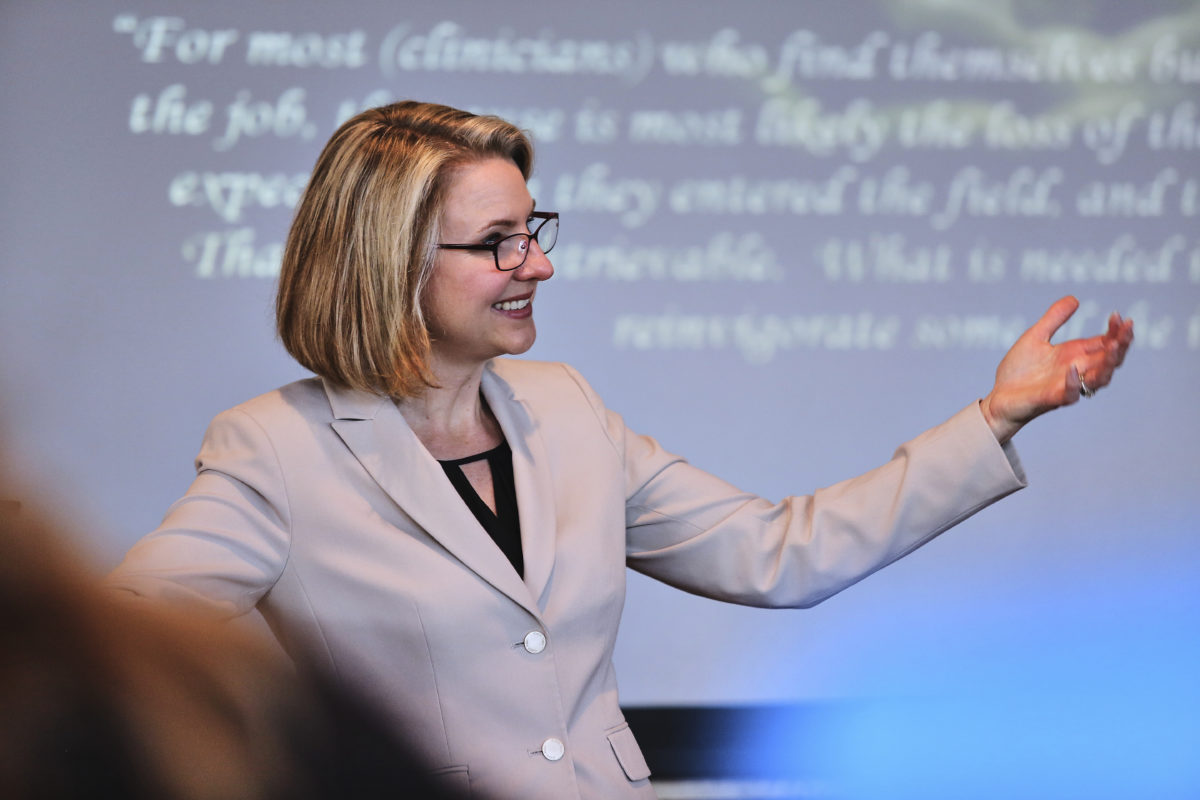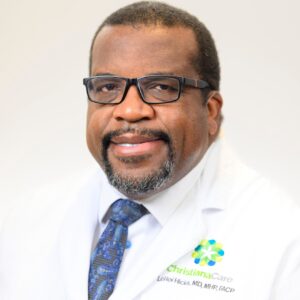Heather L. Farley, M.D., FACEP, an Emergency Department physician and director of Provider Wellbeing, spoke to the Delaware Quality of Life Coalition during its conference on April 20 about the emotional toll palliative care can take on providers.
Meeting the challenge is about more than reducing workloads and time pressures, Dr. Farley said. Providers who are able to spend part of their week on work that is personally meaningful to them are more able to tolerate the high demands placed on them.
She suggested the Triple Aim — improving the patient experience and the health of populations while decreasing the per-capita cost — should be replaced with the Quadruple Aim, which adds an improved clinician experience as a fourth goal.
At Christiana Care, Dr. Farley said, provider burnout — quantified in part by absenteeism, engagement and turnover — is being tracked as a metric. A major effort to reduce it, called the Oasis Project, helps staff find joy and meaning using a multi-modal approach that includes peer support, recognition and social connections, especially by building camaraderie. Her team is also changing the conversation about burnout by framing it as an inherent risk of a stressful profession, instead of a personal vulnerability. This approach is supported by data: A 2015 Mayo Clinic study found that more than half of physicians report at least one symptom of burnout.



